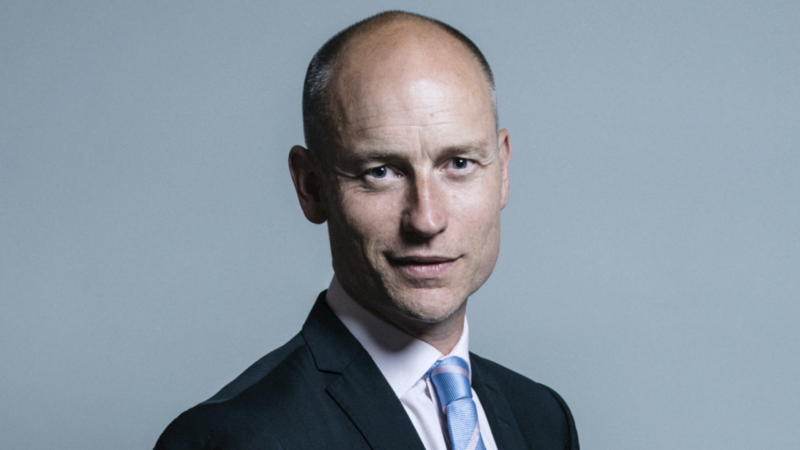
Our democracy is crumbling. The EU referendum exposed many of Britain’s flaws, but perhaps none more so than our creaking system of campaign finance. Drip by drip we have learnt about the extent to which our democratic system has been flooded with ‘dodgy’ money and dirty data. First Cambridge Analytica, the disgraced big data company using harvested Facebook data to sell elections to the highest bidder – a scandal that saw Facebook receive the maximum fine of £500,000. Then there was Leave.EU – the unofficial Brexit campaign bankrolled by the insurance tycoon Arron Banks – which was recently found guilty of “multiple breaches of electoral law“, fined £70,000 and referred to the Metropolitan Police for suspected criminal offences. In July 2018, Vote Leave – the official Brexit campaign – was fined £61,000 for co-ordinating with BeLeave, which was in turn fined £20,000.
Banks, the self-styled ‘bad boy of Brexit’, has since been reported to the National Crime Agency (NCA) by the Electoral Commission because of suspicions that “money given… came from impermissible sources” and that Banks “knowingly concealed the true circumstances under which this money was provided”. Since February 2017, I have been asking the commission to do more to investigate how Banks’ money was spent during the EU referendum and, more recently, why he has refused to disclose the source of his money to the commission and the digital, culture, media and sport select committee, or why he met Russian Ambassador eleven times in the run-up to the EU referendum, not the two or three or four initially stated.
But the very fact that this case took so long to be referred to the National Crime Agency, or indeed that this saga came to pass in the first place, shows just how badly our institutions are struggling to keep on top of election finance. And these questions go far beyond Banks, Brexit and Britain. A recent report by the Atlantic Council – Democracy in the Crosshairs: How Political Money Laundering Threatens the Democratic Process – included three case studies of opaque political funding: Banks; the German far-right party Alternative für Deutschland; and the staggering number of small donations received by Donald Trump’s campaign. It is notable that 59% of the $624m in donations Trump received were smaller than the $200 threshold at which donors must be identified under US federal law – either evidence of staggering success in generating grassroots support, or evidence of financial wrongdoing on a grand scale.
In an attempt to find solutions, I have been working with the Electoral Reform Society and Fair Vote to set up an all-party parliamentary group (APPG) on electoral campaigning transparency to investigate how we can better ensure our democratic processes are protected. To start this debate, FairVote and I have set out a number of proposals:
1. We should look at which powers sit best with the Electoral Commission – which works best as a regulator and policy body – and which should sit with the police. There should also be unlimited fines for electoral offences, rather than a maximum of £20,000, which is an insufficient deterrent.
2. All political campaigns should be made to report spending online. We have a precedent for this with the Independent Parliamentary Standards Authority, which tracks MPs’ spending. This would make it easier for campaigns to track their spending and bring more transparency into elections.
3. Financial transfers from designated campaign groups during referendums must be banned. Current rules allow the designated campaign to give up to £700,000 to groups as long as they do not coordinate their work, but it is surely unreasonable to think gifts of this size are entirely without expectation, particularly as they create the potential to evade spending limits.
4. We should regulate paid political digital advertising in the election period with a digital bill of rights for democracy.
The Electoral Commission was established at a time when political campaigning centred around door knocking and leafletting. Digital campaigning and online political engagement have revolutionised politics to the extent that the Electoral Commission do not currently have the capacity to deal with such an investigation an analogue regulator in a digital age, some might say. It is imperative that we act now by giving resources and legislative bite to the regulatory bodies designed to protect our democracy’s integrity. We cannot allow this issue to be side-lined or overlooked. This is far bigger than Brexit, and if we do not act now to fix our democracy the consequences could be even worse in the future.
As the Information Commissioner Elizabeth Denham recently said: “We are at a crossroads. Trust and confidence in the integrity of our democratic processes risk being disrupted because the average voter has little idea of what is going on behind the scenes.” Our new APPG will seek to bring more transparency and 21st-century solutions to the murky world of campaign finance.
Stephen Kinnock is MP for Aberavon and member of the Brexit select committee.
This article is an extract from a new report by the Electoral Reform Society, ‘Reining in the Political ‘Wild West’: Campaign Rules for the 21st Century‘.




More from LabourList
Turning the page? Labour’s recovery in the polls show a path to 2029 victory
Restoration announce recommendations for NEC candidates
‘Factionalism at the top is weakening Labour – and handing a gift to Reform’